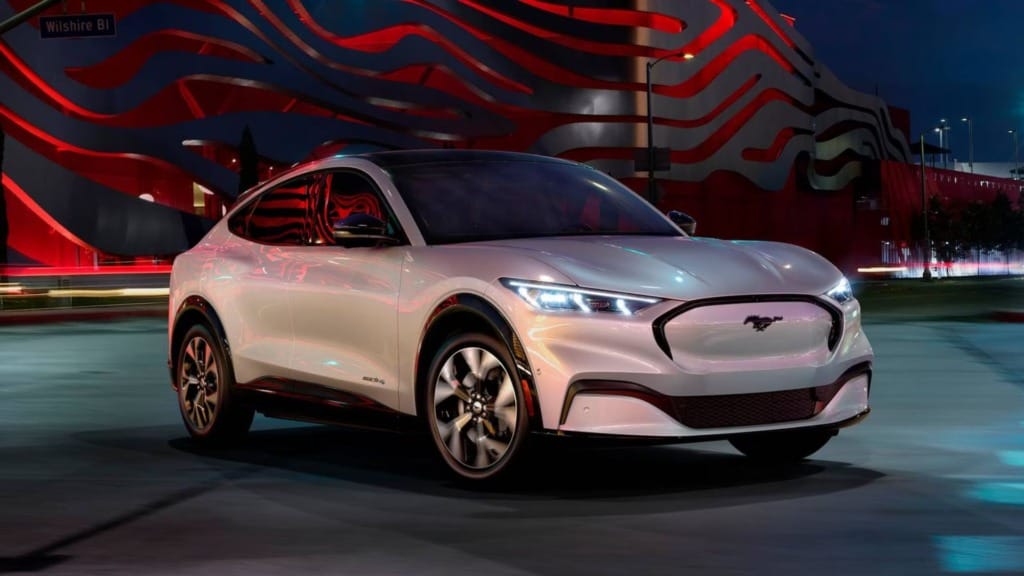GM claims second place in US EV sales with strong third-quarter performance
GM claims No. 2 in US EV sales for Q3 with 32,000 units, surpassing Ford; Tesla remains the leader with over 5 million sold since 2008.

General Motors (GM) is celebrating a milestone in the US electric vehicle (EV) market, officially taking the second spot in EV sales for the third quarter of this year. With sales of 32,000 EVs, GM has pulled ahead of Ford, marking a notable achievement in its efforts to become a major player in the EV industry. Tesla, however, remains the clear leader, having sold over 5 million electric vehicles since its inception in 2008.
Table Of Content
GM’s journey to the No. 2 position
GM’s EV lineup spans several brands, including Chevrolet’s Silverado, Blazer, and Equinox EV models, GMC’s Hummer EV, and Cadillac’s Lyriq. This varied offering leverages GM’s EV platform, previously known as Ultium, which enables the automaker to use the same architecture across multiple brands and models. GM’s strategy seems to be paying off as it climbs the sales charts, with cumulative North American EV sales reaching 370,000 since 2016. Out of these, 300,000 units were sold within the US alone.
GM’s executive director of finance and sales communications, James Cain, attributed the increase in sales to the company’s focused approach to EV production. Cain highlighted how GM’s dedicated EV platform and partnerships with LG and Samsung SDI for battery production have accelerated EV sales. As Kelley Blue Book and the New York Times reported, GM’s efforts have surpassed Ford by approximately 8,600 units in third-quarter EV sales.
Despite the competition, Ford maintains it is still America’s second-best-selling EV brand, following Tesla. Ford spokesperson Dan Barbossa pointed out that GM’s figures combine EVs from multiple brands—Chevrolet, GMC, and Cadillac—while Ford’s figures represent a single brand. Barbossa added, “We remain the No. 2 brand,” in response to GM’s recent achievements.
Despite its success in recent quarters, GM has encountered some challenges in meeting its ambitious production goals. The automaker initially projected that it would produce 1 million EVs by 2025. However, that target has become less certain due to various hurdles, including production delays, issues with charging infrastructure, and rising interest rates, which have dampened the overall EV market growth in the US.
GM still aims to profit from EV sales by the end of this year, a key milestone in its transition to a fully electric lineup. Yet industry-wide trends show that consumer demand for EVs has softened recently, especially after early adopters purchased. As a result, several automakers, including GM, have adjusted their rollout plans and slowed down production to better match current demand.
Ford’s evolving EV strategy

Ford also had an early lead in the EV market with its Mustang Mach-E SUV, launched in 2019, and the all-electric F-150 Lightning truck debuted in 2022. Ford’s early successes positioned it well in the EV market, but production obstacles and parts shortages have caused setbacks. Ford’s EV division, known as Model E, has reportedly faced significant losses, and the company has had to make tough decisions, including scrapping plans for a three-row SUV and halting F-150 Lightning production until next year.
While Ford has faced challenges, the company remains focused on innovation, mainly through its Silicon Valley Skunkworks team. This team is tasked with developing the next generation of EVs on a more cost-effective platform. By prioritising affordability, Ford aims to attract a broader range of customers to its future EV lineup, particularly those who may be deterred by high price points.
The future of EV sales in the US
As EV sales continue to grow in the US, GM and Ford are positioning themselves to capture a larger market share. While Tesla’s dominance remains unchallenged, the competition for the second spot highlights the increasing interest in EVs among American consumers. GM’s diversified EV offerings and focus on battery partnerships give it a competitive edge, while Ford’s strategy aims to appeal to mainstream buyers through affordable and accessible EV options.
Despite the challenges, the momentum is clear: both automakers are making strides towards a more electric future to achieve profitability in this segment. However, it remains to be seen whether GM will maintain its current position or if Ford’s upcoming innovations will allow it to reclaim its second spot in the future.
















